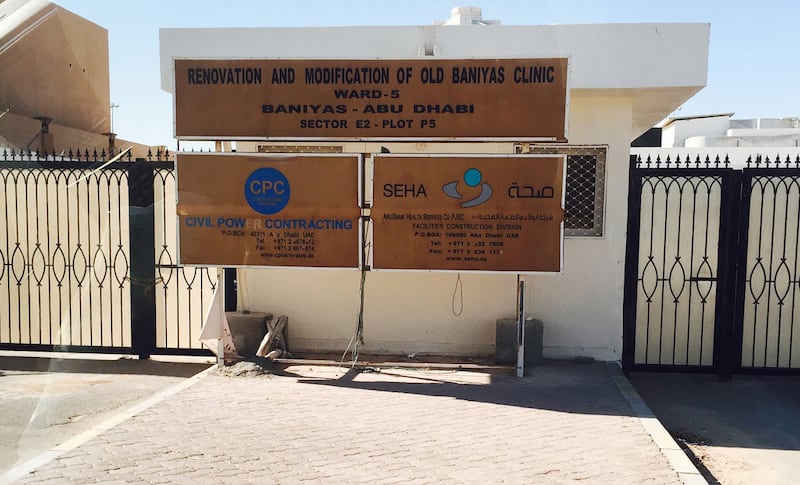HIV in the UAE:
■ Lack of accurate data in UAE fuels HIV stigma
■ Emirati HIV sufferer wants help to find a partner
■ Emirati man with HIV held for more than a decade at health facility
_____________________________________________________________
ABU DHABI // Stigma and a lack of statistics on patients infected with HIV persist in the UAE, despite increased awareness.
“Some people prefer to conceal their status, thinking that getting the treatment in the country can expose them and might make them more stigmatised. Thus some prefer to get the treatment elsewhere,” said Dr Nada Al Marzouqi, national HIV/Aids programme manager.
Dr Al Marzouqi attributed this to a “lack of the right knowledge and information on the virus”.
HIV is still linked in many minds with high-risk behaviour, such as unsafe sex and drug use.
“This leads to blaming and increased discrimination for those who are living with HIV infection,” she said.
She encouraged the public to find out more about the virus.
The lack of a central database, however, makes raising public awareness more of a challenge.
Simone Salem, social mobilisation officer at UNAids (Joint United Nations Programme on HIV and Aids), said there was “no stigma index” in the UAE.
A UNAids country progress report said the lack of data made it “very difficult to provide accurate figures for HIV rates”.
The report said there were 780 registered cases of “still alive” Emiratis with HIV from 1980 to 2012, but “these figures represent only the number of officially reported cases, most of which were found through screening in the context of blood donations, pregnant women, premarital testing and among [tuberculosis] patients”.
“Those who suspect they may have been exposed to HIV, through sexual relationships or injecting drug use, may avoid the existing screening programmes,” said the UN report.
“To date, UAE has not had a proper system for monitoring and evaluation of HIV/Aids, nor has it developed a joint national [monitoring and evaluation system] to systematise the collection, reporting, storage and utilisation of all HIV-related data for planning and programming purposes,” the report concluded.
“Overall, effective surveillance and monitoring are challenged by the presence of parallel data management systems at the national Ministry of Health and the health authorities of Abu Dhabi and Dubai, which hampers effective data flows and sharing.”
This lack of evidence made it “difficult to convince political leaders and policymakers to provide political and financial support, and to establish effective HIV-prevention, care and treatment programmes”.
Dr Al Marzouqi, however, said her agency registered local figures and that less than 1 per cent of the population was infected.
Compared with the rest of the region, the number of Emiratis infected with HIV was very low.
The Ministry of Health provides free HIV antiretroviral drugs to Emirati patients. Counselling sessions are also available.
Dr Al Marzouqi said: “HIV can be controlled. And most people with the virus can live a long and healthy life if they are treated medically. They can live like any other healthy person and fully participate in society.”
Expatriates who test positive for the virus, however, are deported.
Dr Al Marzouqi said: “Patients with HIV can live among us safely. The HIV virus cannot be transmitted during regular, everyday activities. It is not transmitted by shaking hands, kissing, hugging, sharing pools or public toilets, and it cannot be transmitted through insect bites or the sharing of food utensils.”
She said HIV-infected women could also safely have children.
“The risk of mother-to-baby transmission is at 15 per cent if she’s not on medication, and much lower if she is.”
“Many HIV couples have had healthy, uninfected children,” said Dr Al Marzouqi.
_____________________________________________________________
About this package:
Despite increased awareness, stigma and a lack of statistics on patients infected with HIV persist in the UAE. People prefer to conceal their status, believing that treatment in the UAE would expose them, say experts.
A lack of support for patients is a concern for a 45-year-old Emirati with HIV, who believes there should also be a “matchmaking” programme for people in his position.
According to a report by the Population Reference Bureau in coordination with the United Nations, Iran is one of the only regional countries to successfully introduce Positive Clubs for people with the disease.
Meanwhile an Emirati man with HIV has been waiting 16 years to be released from government care because his family won’t give their consent and despite UAE law saying nationals with HIV should not be detained.
salnuwais@thenational.ae





